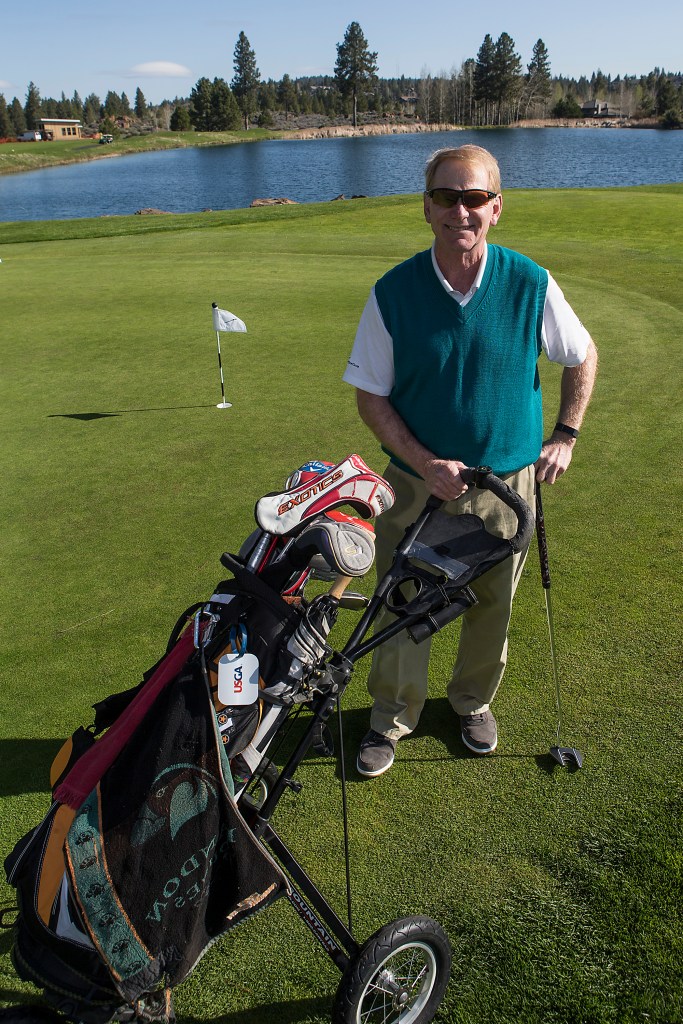Longtime Bend orthopedist retires
Published 12:00 am Tuesday, April 30, 2019

- After 37 years of being an orthopedic surgeon in Bend, Dr. Rod Wigle has retired and hopes to spend more time doing the things he loves like golfing, fishing and spending time with his family. (Ryan Brennecke/Bulletin photo)
During his last year of high school, Rod Wigle was shooting hoops with a friend, who had completed his degree at Oregon State and entered medical school.
“What are you going to do?” the friend asked Wigle, an all-conference basketball player and valedictorian of his class.
“I don’t know, something math or science-based,” Wigle recalls telling him.
“You ought to consider medicine,” his friend replied. “You’ll have a comfortable living. It gives you the ability to choose where you want to live, and you can contribute to your community.”
They had no idea just how prescient that advice would be.
Last month, Wigle retired after 37 years of practicing orthopedics in his chosen town of Bend, raising two kids and contributing extensively to the community at large.
Wigle was born in Canyonville and was raised five miles west of there in the tiny town of Riddle. His father, a World War II paratrooper, worked in a nickel mine; his mother was a teacher. With two older brothers and two younger sisters, he was an avid athlete playing basketball, baseball and football.
After high school, Wigle enrolled in Southern Oregon University, completing a degree in biology while playing three sports. In his sophomore year, he broke his collarbone on a kickoff in the second football game of the year, and from there on, concentrated solely on baseball.
He would load up on courses in the fall and winter semester, to have an easier course load in the spring when road games limited him to about two days of classes a week.
“The big thing that kept you going was sports,” he said. “To this day, most of the people I keep in touch with from college are the guys I played sports with.”
At Southern Oregon, he met his wife, Carla, a singer who had turned down a scholarship to The Juilliard School in New York City. They got married during his senior year, before he enrolled in medical school at Oregon Health & Science University in Portland. He paid his way through college working as a choke setter and a timber faller in the logging industry, and loading freight.
Wigle always knew he wanted to go into orthopedics, but he also wanted to be a complete physician.
“I wanted to be able to take care of any medical problem that would walk through the door,” he said.
So after medical school, he looked for a flexible internship that would allow him to rotate through different specialties, and train in orthopedic surgery. He also knew he wanted to work in a public county hospital, where he would be thrown into the fire and asked to do more on his own. He visited hospitals up and down the West Coast, before finally settling on Maricopa County Hospital in Phoenix.
Over his five years of internship and residency, he did a bit of everything.
“I remember doing seven appendectomies in one night. I delivered over 100 kids,” he said. “You got to take care of some very sick people.”
The program was grueling. Residents worked five to six days a week, were required to write publishable medical papers every six months, while being on call every other night, if not every night of the week. They learned to read their own pathology slides and X-rays, and were involved in the training of family physicians.
At the end of the residency, he took a national exam in orthopedics, scoring in the 99th percentile. He considered a fellowship in that specialty.
But Wigle, who had now completed four years of college, four years of medical school and another five years of training, who now had two small children, decided he had had enough of schooling.
“I want to go to work and be with my family and have a life,” he told him.
Moreover, his son, Trevor, had developed asthma in Phoenix. One night, Wigle woke to find the 2-year-old’s face inches away from his own.
“Dad … Dad …” he whispered. “I can’t breathe.”
Wigle took him into the bathroom, removed the boy’s Scooby-Doo pajama top and started counting his breathing: 80 times a minute.
“So we started looking for clear air, and Bend was pretty high in clean air,”
He joined a clinic run by Dr. James Sulkovsky in Bend in 1982. Wigle did some sports medicine but soon developed a knack for shoulder surgery and knee reconstructions.
He and Carla became active members of community, raising money for after-school activities and other causes. They were among a group of parents who brought Little League baseball to Bend, convincing the late Vince Genna to allow them to play on local baseball fields.
In 1998, Wigle had surgery for a melanoma in his eye that impaired his vision somewhat. While there were workarounds for his limitation, he decided to stop doing knee operations.
He and Sulkovsky ran their practice out of a small clinic on Franklin Avenue before building a medical building on 27th Street in 1995.
Their practice had started to grow, eventually becoming Desert Bone and Joint, now renamed Desert Orthopedics. But Wigle was growing increasingly uncomfortable with the practice model of the large clinic, which increasingly relied on physician assistants to take some of the load off the doctors.
“As the group grew, it just started losing what I always wanted in practice, which was a very personable, one-on-one interaction with my patients,” he said. “I wanted to hear from the horse’s mouth, if you will, the story: What are your symptoms, what makes it worse, what makes it better.”
He had learned early on in medical school that the most important part of treating a patient was an accurate diagnosis, and if you stopped talking long enough and listened to the patient, they would tell you the diagnosis.
“I never did feel like I could make the diagnosis if I didn’t hear the story,” he said.
So Wigle struck out on his own, launching a private practice on Chandler Avenue in Bend in 2004, until November of 2018.
When the hospital switched to its fourth electronic health record system, he decided at age 67, he had had enough.
“It’s taken away from the medicine that I’ve enjoyed practicing,” he said.
Now, Wigle will spend more time doing the things he loves, golfing, hunting, fishing, and spending time with his family, including four grandchildren who all live in Central Oregon. Over his four decades of practice, he’s seen Bend grow from a small town of fewer than 20,000 to nearly five times that size. He’s seen the medical community grow from a tight-knit group of primary care doctors and specialists, to one made up more and more of subspecialists, increasingly reliant on new technologies.
For a doctor raised in a small town who has valued the collegiality he learned from team sports and the personal relationships he’s built with this patients, the new model of health care no longer held the same attraction.
“It’s time for me to not do it anymore,” he said.
— Reporter: 541-633-2162, mhawryluk@bendbulletin.com





